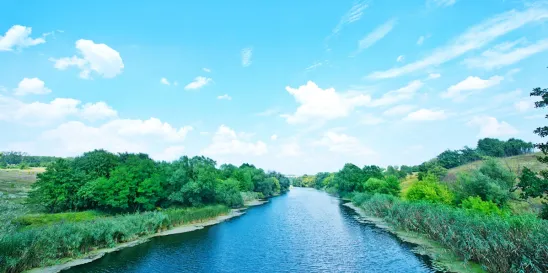On August 24, 2023, at World Water Week in Stockholm, the COP28 UAE Presidency announced its Water Agenda ahead of COP28, formally known as the 2023 United Nations Climate Change Conference, to be held between November 30 and December 12, 2023, in Dubai. The delegation’s three priorities will be conserving and restoring freshwater ecosystems, enhancing urban water resilience and bolstering water-resilient food systems.
The COP28 UAE Presidency also unveiled a partnership with the Netherlands and Tajikistan, which will serve as COP28 Water Champions, to deliver water policy, technology and financing results at COP28. The two countries co-hosted the UN 2023 Water Conference in March, which led to the formulation of the Water Action Agenda.
In addition, COP28’s two-week program will feature Food, Agriculture and Water Day, during which the UAE and Brazil will co-host the first UNFCCC high-level dialogue on building water resilience in food systems. At this event, representatives from the government, private sectors and international organizations will assess water and food resilience within National Determined Contributions (NDCs) and National Action Plans (NAPs). Participants will focus on innovation investment, regenerative agriculture and national transformation pathways, underpinned by financing mechanisms.
“With the COP28 Water Agenda, in collaboration with the Netherlands and Tajikistan, we seek to bridge the insights from the UN Water Conference with the climate community, amplifying our adaptation and mitigation efforts,” said Zavqi Zavqizoda, the Tajik Minister of Economic Development and Trade.
Taking the Temperature: There has been controversy surrounding the decision to have the UAE host COP28 and to name Sultan al-Jaber, the CEO of Abu Dhabi National Oil Co, as COP28 President given that it is one of the world’s largest oil and gas producers. In May 2023, 133 U.S. and EU politicians called for the removal of Al-Jaber from the COP28 Presidency.
COP28 will be the second COP that includes water on its official agenda. The second week of COP27 last year in Egypt focused on the link between water and global warming, and launched water-related initiatives, including the Action on Water Adaptation and Resilience (AWARe). AWARe aims to decrease water losses worldwide and improve water supply, and promote cooperation and linkages between water and climate action.
By continuing to prioritize the water agenda, COP28 will increase awareness of international water-related risks and opportunities in areas that have not received as much coordinated attention, such as agriculture. Policies to improve water quality, for example, have been adopted on a regional basis, such as the European Parliament’s proposed legislative amendments we reported on in June to reduce pollution in Europe’s water bodies covering inland, transitional and coastal surface waters and groundwater.



 />i
/>i
